AI Mobile Phone Boom? Most Consumers Remain Uninterested: "I Won't Pay Just for AI"
![]() 01/03 2025
01/03 2025
![]() 459
459
In 2024, AI technology is revolutionizing our daily lives at an unprecedented pace, with smartphones emerging as its primary beneficiaries. From voice assistants to real-time translation and image enhancement, nearly every newly launched phone boasts sophisticated AI capabilities.
According to a report by market research firm IDC, global smartphone shipments surged by 6.2% year-on-year, reaching 1.24 billion units, with over 70% of devices equipped with AI functions. However, data from iResearch Consulting indicates that over 51% of Chinese smartphone users have extended their replacement cycles to 3 to 4 years.
While AI features have propelled smartphone technology to new heights, their impact on consumer behavior remains questionable. Have AI-powered phones truly transformed our lives? Are the "smart experiences" they tout the cherry on top or the main attraction?
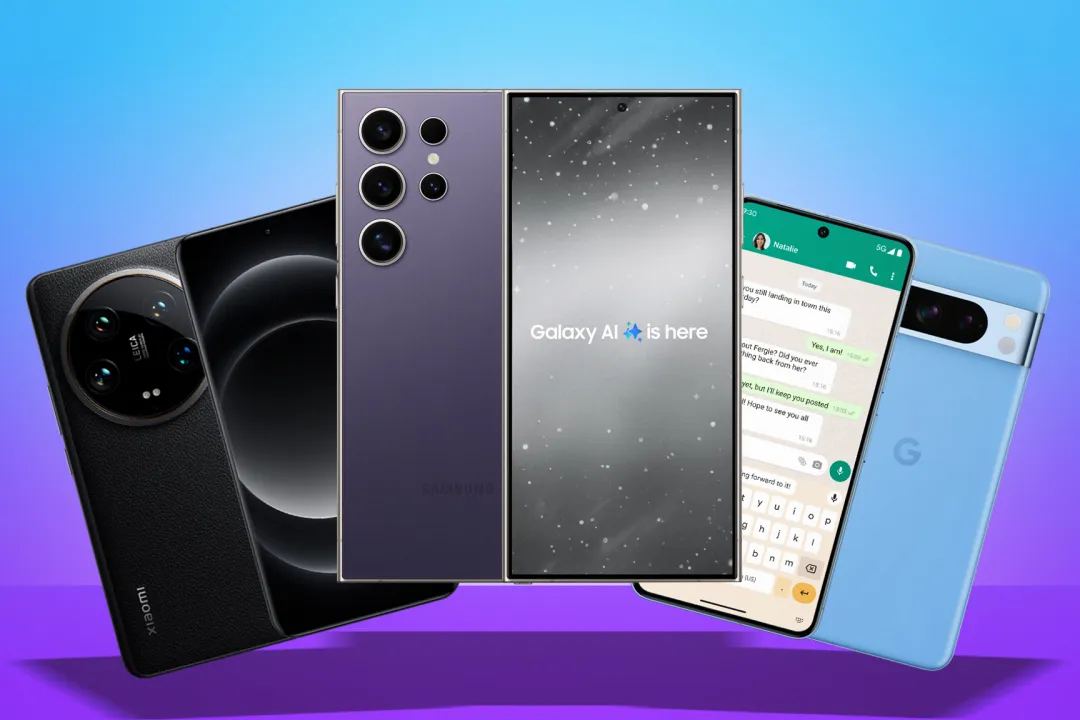
(Image source: Stuff)
To delve deeper, I interviewed friends and relatives about their perspectives on AI mobile phones, exploring their views as ordinary consumers.
"AI mobile phones are impressive, but I won't pay extra just for AI."
Since OPPO's press conference on the eve of this year's Spring Festival, heralding the era of AI mobile phones, the concept has gained widespread recognition. Currently, all six major Chinese mobile phone manufacturers have incorporated the AI concept, with Apple being the only notable exception in the Chinese mainland market. Despite these significant strides by manufacturers, consumers' understanding of "AI mobile phones" remains unclear. So, what's the reality?
For this interview and data collection, I surveyed 10 individuals from diverse professions and age groups, some having replaced their phones in the past two years, while others considering an upgrade.
When asked if they understood the concept of "AI mobile phones," 40% responded negatively, while 60% affirmed their understanding. One respondent learned about AI mobile phones through manufacturer promotions but couldn't specify how many AI functions their phone had.
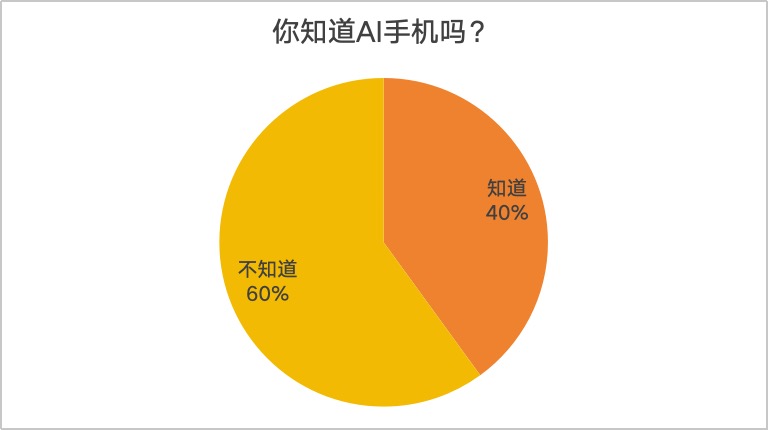
(Image source: Leikeji drawing)
The four respondents unfamiliar with AI mobile phones generally showed little interest in digital products. Among those who claimed to understand, most were digital industry professionals, journalists, or those in fast-moving consumer goods, typically under 30 and more receptive to new technologies.
I further asked the six respondents who understood AI mobile phones if AI would motivate them to buy a new phone. Surprisingly, nearly all said no, with only one considering it but not as a decisive factor. This respondent, a software developer and digital enthusiast, often purchases digital products but prioritizes design, camera quality, and performance over AI, viewing it as an added benefit.
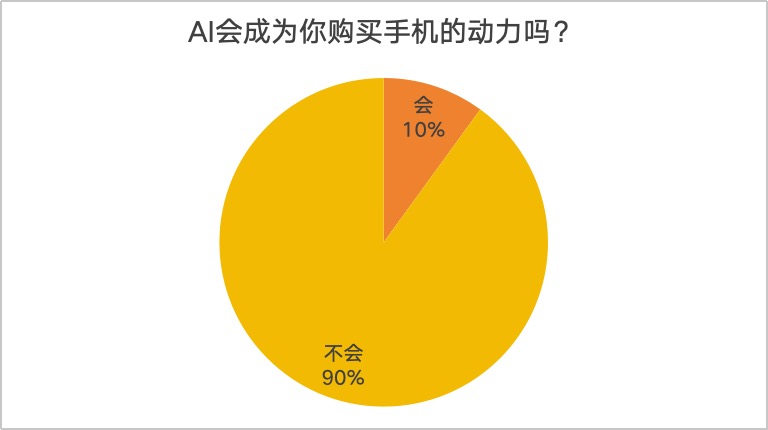
(Image source: Leikeji drawing)
Most respondents echoed similar sentiments, believing that current smartphones cannot do without core hardware like cameras, design, and performance. While AI functions are appreciated, they are not essential. When asked how powerful AI mobile phones would need to be to significantly influence replacement decisions, one respondent likened it to the "Shaniu" from the TV series "Magic Mobile Phone."
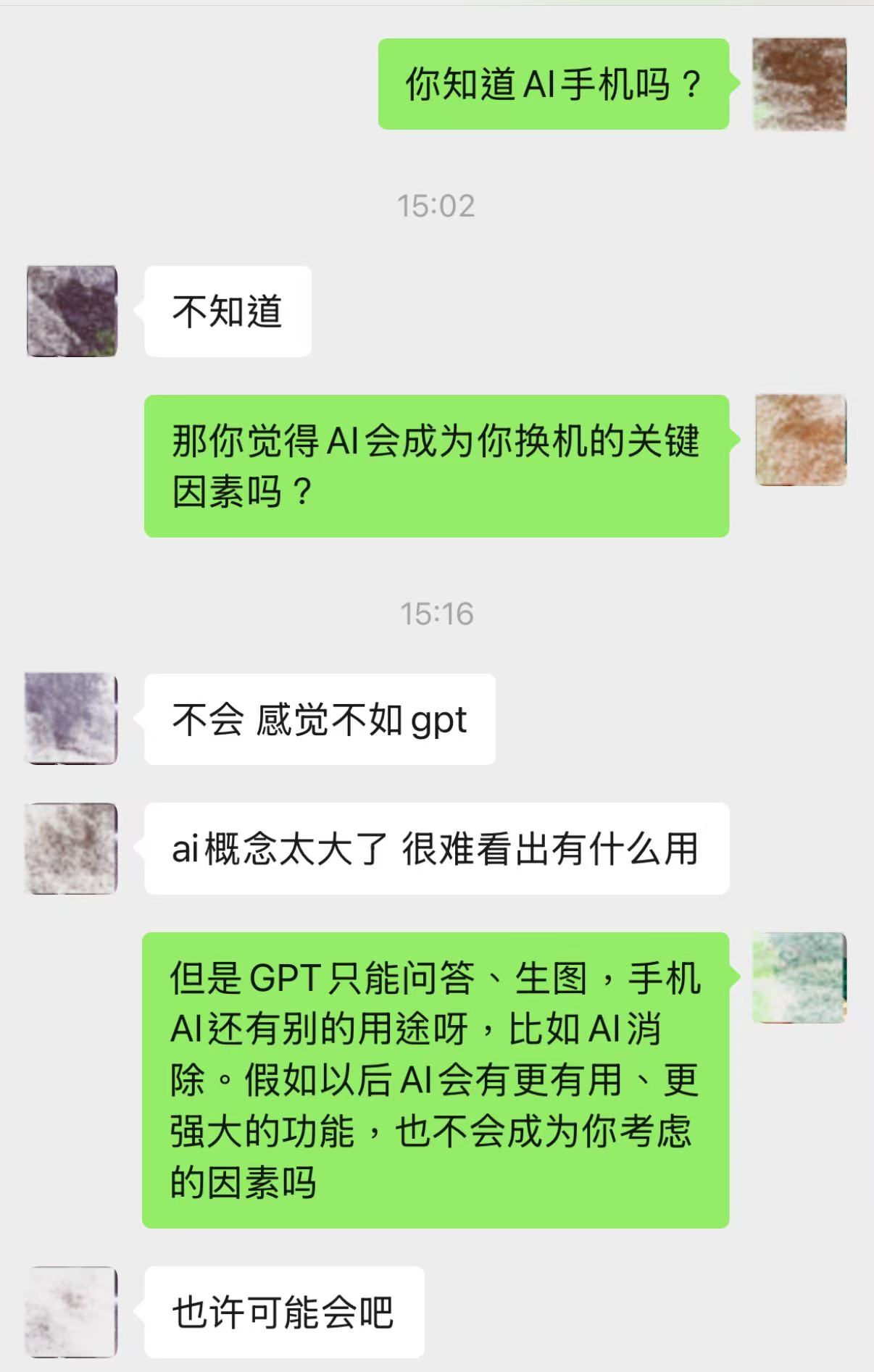
(Image source: Leikeji drawing)
Among those who understand AI mobile phones, occasional use of AI functions was reported. Daxiong (pseudonym), a fan of mobile phone AI functions, frequently uses the AI summary feature to sift through work materials efficiently. He prefers phone AI summaries over standalone AI applications for their convenience.
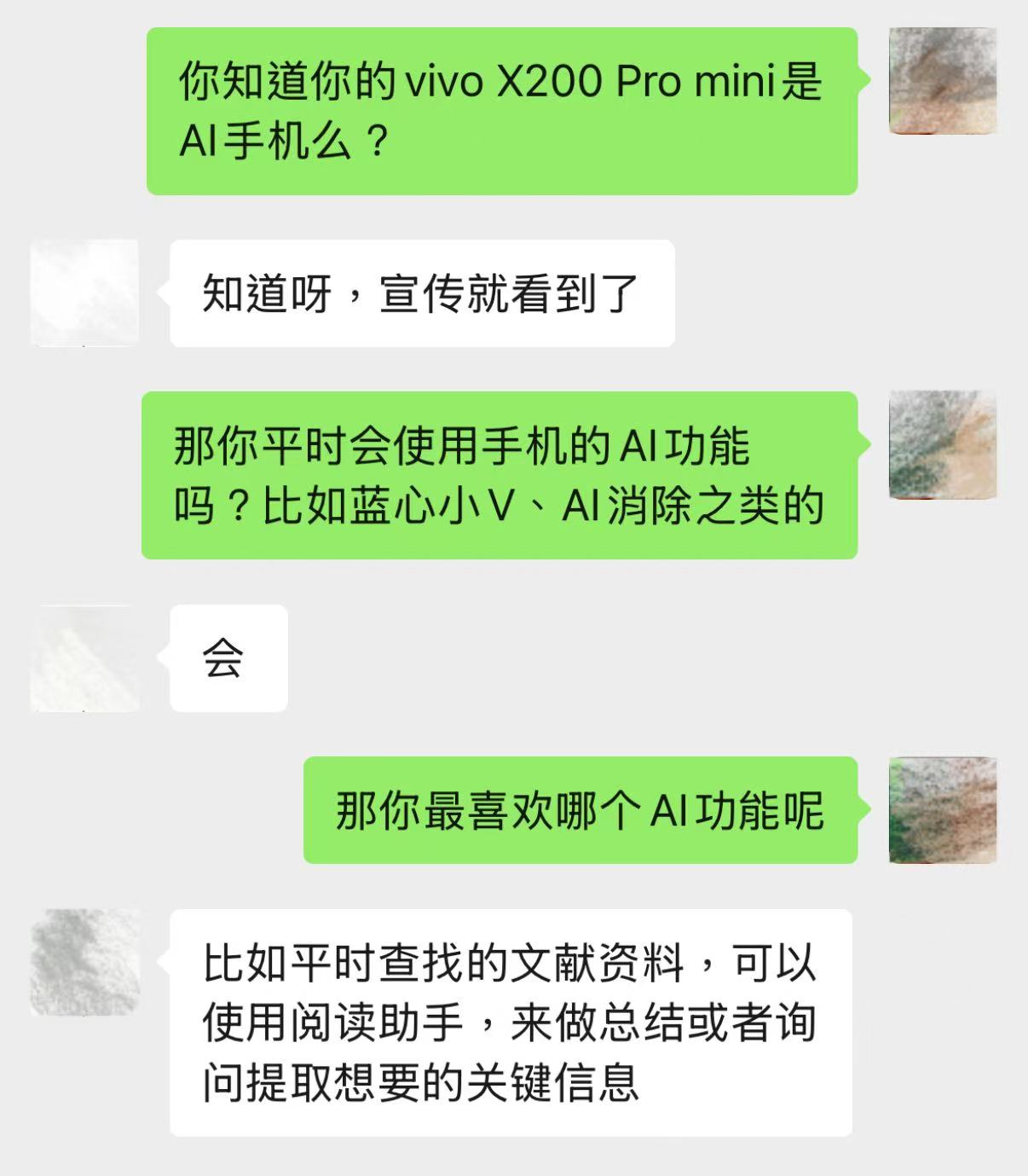
(Image source: Leikeji drawing)
Beyond AI summaries, respondents also recognized the AI removal function. PigAngel (pseudonym), a travel enthusiast, finds AI removal helpful in enhancing tourist photos by eliminating bystanders, though it's not perfect.
Currently, consumers have a vague understanding of AI mobile phones, with some unaware of the specific AI functions their phones offer. For instance, both OPPO and vivo incorporate AI algorithms into ultra-long zoom, but consumers are unaware, only noting the clarity of photos. While people may not realize it, AI is already transforming their lives.
Will AI be the primary motivation for phone replacement? NO!
Despite the growing awareness of "AI mobile phones," many do not fully comprehend the concept, let alone the specific AI functions their phones offer. Those who do understand AI functions generally view them as beneficial but not essential for phone replacement.
This doesn't diminish AI mobile phones' appeal. Some use AI summaries to boost work efficiency, while others enhance travel photos with AI removal. AI functions do bring convenience in specific scenarios but are more of an added bonus than a replacement necessity.
All 10 interviewed consumers bought new phones in the past two years, with factors like camera quality and performance outweighing AI considerations. For instance, Daxiong recently purchased the vivo X200 Pro mini but was unimpressed by its AI features, prioritizing camera and performance.
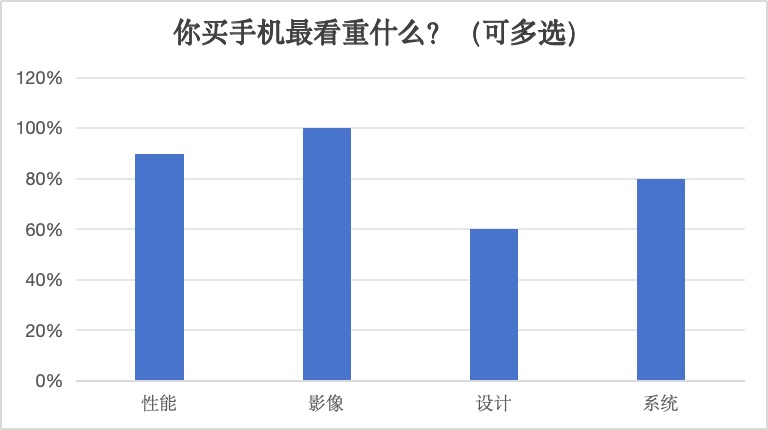
(Image source: Leikeji drawing)
Consumers prioritize cameras, performance, and design over AI. An iPhone 15 Pro user expressed interest but wouldn't switch to Android solely for AI, emphasizing camera and design appeal.
iPhone users share a similar attitude towards AI, seeing it as secondary to cameras and design when considering a new phone.
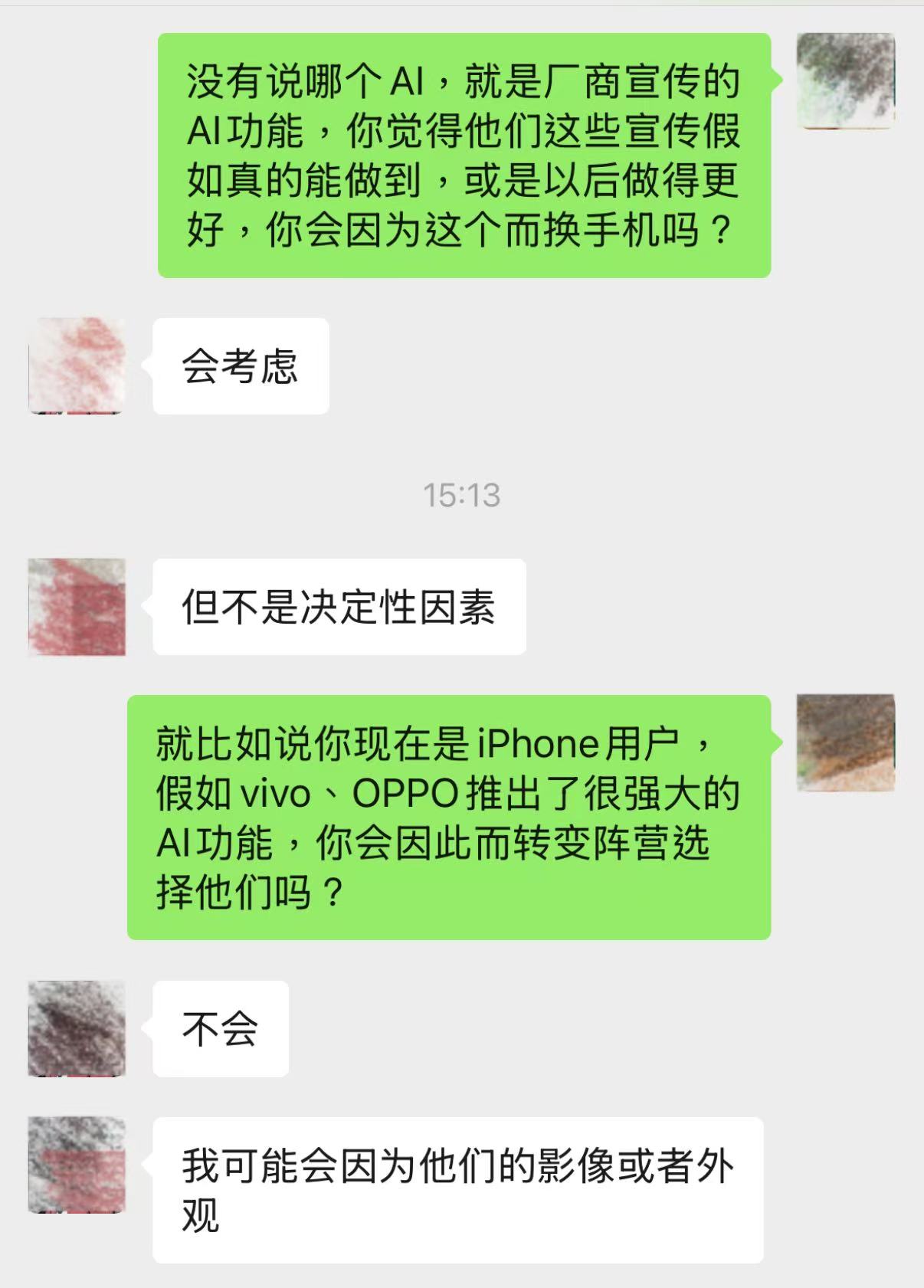
(Image source: Leikeji drawing)
Market feedback mirrors this, with manufacturers returning to traditional hardware, design, and innovation discussions despite promoting AI. OPPO, initially aggressive with AI phones, later adopted "Apple-like" features like LivePhoto in the Find X8 and Reno 13 series, boosting sales and social media engagement.
A SellCell survey revealed that over 73% of iPhone users and 87% of Samsung users find AI functions have limited daily impact, with over 86% of iPhone users and 94% of Samsung users unwilling to pay extra for AI. This data underscores that consumers' phone replacement decisions hinge on core hardware performance like battery life, camera capabilities, and storage space.
While AI functions offer convenience, they currently serve as an added bonus rather than a replacement driver. Traditional hardware indicators like camera, performance, and design remain paramount.
However, does AI technology's emergence fail to spur a new wave of phone replacements? Absolutely not.
Historically, smartphone innovations triggering replacement waves offer widespread applicability and intuitive user value. The transition from 4G to 5G, enhancing network speed and reducing latency, fundamentally changed usage habits, driving large-scale replacements. Similarly, AI technology is showing similar potential, offering conveniences previously unattainable.
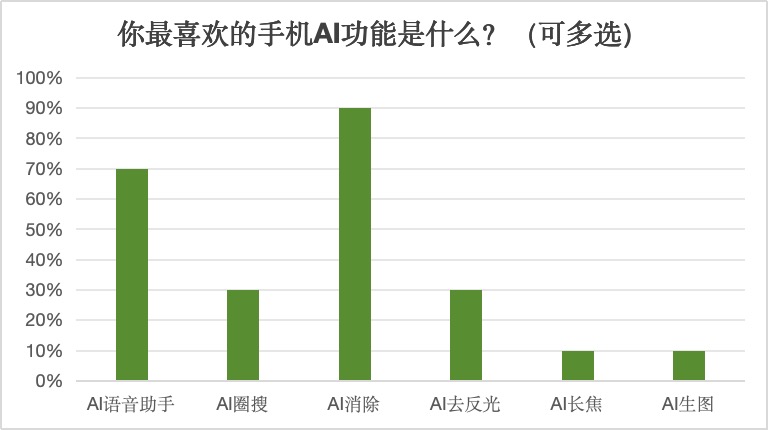
(Image source: Leikeji drawing)
Interviews and research reveal that while consumers recognize existing AI functions in specific scenarios, they harbor high expectations for future AI mobile phones.
Some hope for true global voice control, completing all operations with a single command. Others anticipate AI analyzing user habits to provide proactive optimization solutions, like adjusting notification frequency, recommending exercise plans, or predicting health issues.
Over time, the "AI mobile phone" concept may fade, much like how phones no longer emphasize being 5G. However, AI technology will persist, becoming increasingly intelligent, subtly enhancing our lives. Objectively, "AI mobile phones" aren't a strong selling point, at least not easily understood by average consumers.
Source: Leikeji


